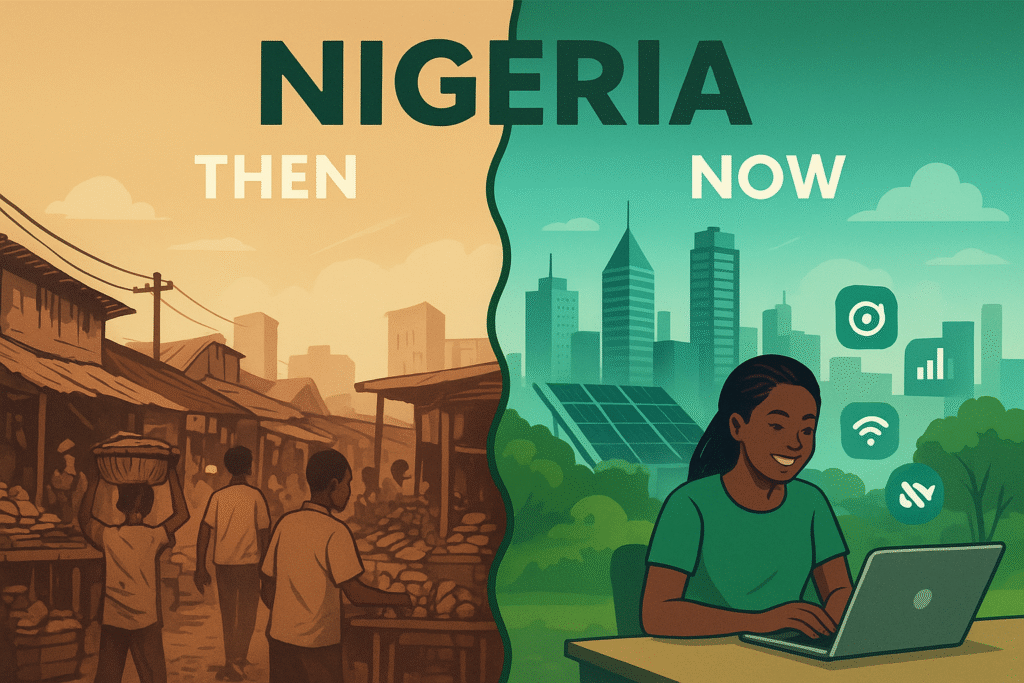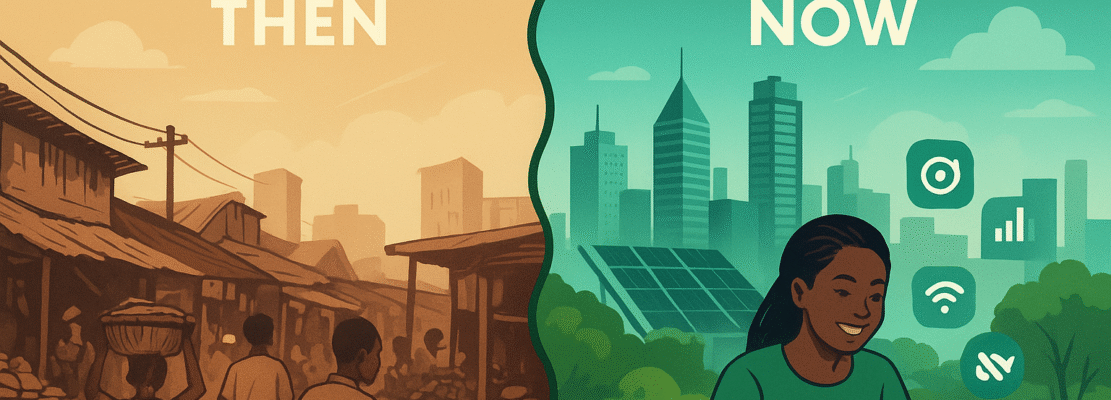Nigeria’s economy has always been a paradox: immense potential trapped under layers of structural challenges. Over the years, entrepreneurs, investors, and policymakers alike have wrestled with a central question—what is the true policy effect on the Nigerian business climate? To answer that, one must look at where the country has been, where it is now, and how government policies have shaped the environment for trade, investment, and enterprise. This article explores The Policy Effect: Nigeria’s Business Climate Then and Now, examining the interplay between reforms, global shocks, and local realities.

Table of Contents
Then: A Business Climate Stifled by Policy Inconsistencies
For much of the past two decades, Nigeria’s business climate was defined by uncertainty. Entrepreneurs complained about multiple taxation, weak infrastructure, inconsistent regulations, and an overdependence on oil revenue. Policies often looked good on paper but faltered at implementation.
For instance, before 2015, foreign exchange (FX) restrictions and erratic monetary policies discouraged foreign investors. Import-dependent businesses faced rising costs, while small and medium enterprises (SMEs) struggled to access affordable credit. The World Bank’s Ease of Doing Business Index (2020) ranked Nigeria at 131 out of 190 economies—better than before, but still below potential.
The policy effect in those years was more negative than positive, creating bottlenecks rather than enabling growth. For many investors, the Nigerian market’s size was attractive, but the rules of the game were simply too unstable.
Now: Winds of Change in Nigeria’s Business Climate
Fast forward to 2023–2025, and the landscape is shifting. The administration of President Bola Ahmed Tinubu has implemented bold reforms that—whether praised or criticized—are undeniably reshaping Nigeria’s business outlook.
1. Fuel Subsidy Removal
One of the most impactful moves was the removal of the long-standing fuel subsidy in May 2023. For decades, subsidies consumed billions of dollars annually, creating distortions and draining government revenue. Its removal sparked inflationary pressures, but it also freed up funds for infrastructure and social programs. The policy effect here is twofold: short-term pain for households and businesses, but long-term fiscal stability.
2. Foreign Exchange Liberalization
The Central Bank of Nigeria (CBN) unified the multiple exchange rates into a single market-driven rate. This policy shift, though initially chaotic, has improved transparency in the FX market and restored some investor confidence. Exporters and foreign investors, once discouraged by opaque rules, are beginning to see Nigeria as a more predictable market.
3. Digital Economy Push
Nigeria’s startup ecosystem, valued at over $5 billion (Partech Africa, 2024), has benefitted from pro-innovation policies. From fintech to agritech, government initiatives to digitize tax filing, ease business registration, and support innovation hubs have strengthened the policy effect on the digital sector.
4. Tax Reforms and Ease of Doing Business
Recent tax policy changes aim to streamline multiple levies, though execution remains a work in progress. The Corporate Affairs Commission (CAC) now enables businesses to register online in less than 48 hours—an unimaginable feat ten years ago.
Taken together, these reforms are redefining The Policy Effect: Nigeria’s Business Climate Then and Now, shifting Nigeria from a policy-stifled economy to one in transition.
Comparing Then and Now: A Tale of Two Eras
- Investor Confidence: Then—capital flight and skepticism. Now—renewed inflows, especially in tech and energy, albeit cautiously.
- SMEs: Then—crippled by bureaucracy. Now—still challenged, but with greater access to digital tools and loans.
- Infrastructure: Then—chronic underinvestment. Now—fresh momentum through public-private partnerships, particularly in renewable energy and transport.
- Global Perception: Then—Nigeria was seen as “too risky.” Now—Nigeria is viewed as “risky but reforming.”
The difference lies in the policy effect: past policies discouraged growth, while present reforms, though imperfect, are creating pathways for resilience.
The Challenges That Remain
It would be misleading to paint today’s business climate as purely positive. Inflation remains stubbornly high, exceeding 24% (NBS, 2024). The naira’s depreciation has increased costs for importers. Security challenges in some regions continue to hinder agricultural and industrial activities.
The policy effect in this regard is mixed: while macroeconomic stability is improving, the social cost of reforms is steep. Many small businesses complain that while policy promises long-term benefits, immediate survival is at risk.
Stories from the Ground: The Human Face of Policy
Take the story of Amina, a small bakery owner in Kano. In 2019, she struggled with erratic power supply, paying heavily for diesel. Policies on energy reform were slow, and she nearly shut down. Fast forward to 2024, she now benefits from a mini-grid solar project supported by government incentives. While inflation bites, her energy costs have stabilized, and her business is expanding.
Similarly, tech entrepreneur Chinedu in Lagos recalls how in 2016, raising foreign investment for his fintech startup was nearly impossible due to FX restrictions. Today, with more transparent FX rules, he has secured seed funding from a U.S. investor.
These stories reveal The Policy Effect: Nigeria’s Business Climate Then and Now—policies are no longer abstract but are tangibly shaping lives and businesses.
Looking Ahead: Policy as the Bedrock of Transformation
If Nigeria sustains its reform momentum, the next decade could witness unprecedented transformation. The African Continental Free Trade Area (AfCFTA) positions Nigeria to become a hub for regional trade. Green technology policies could unlock new industries in renewable energy, sustainable agriculture, and waste-to-wealth enterprises.
For this to happen, policymakers must ensure:
- Consistency – Businesses need assurance that policies won’t change overnight.
- Execution – Announcements must translate into action on the ground.
- Inclusion – Policies must cushion vulnerable groups to prevent unrest.
In essence, the policy effect is strongest when it is predictable, inclusive, and transparent.
Conclusion – The Policy Effect: Nigeria’s Business Climate Then and Now 1 of 1
The Policy Effect: Nigeria’s Business Climate Then and Now is a story of contrasts. Yesterday’s Nigeria was marked by policy inconsistency and uncertainty. Today’s Nigeria is a nation in transition—painful reforms are underway, but they carry the seeds of a stronger tomorrow.
For entrepreneurs, the message is clear: policy is no longer a distant government agenda; it is the single most powerful force shaping opportunities. For investors, Nigeria’s reforms signal a willingness to adapt and compete. For citizens, the hope is that today’s sacrifices will yield tomorrow’s prosperity.
In the end, the policy effect is not just about economics—it is about lives, livelihoods, and the future of Africa’s largest economy.









































